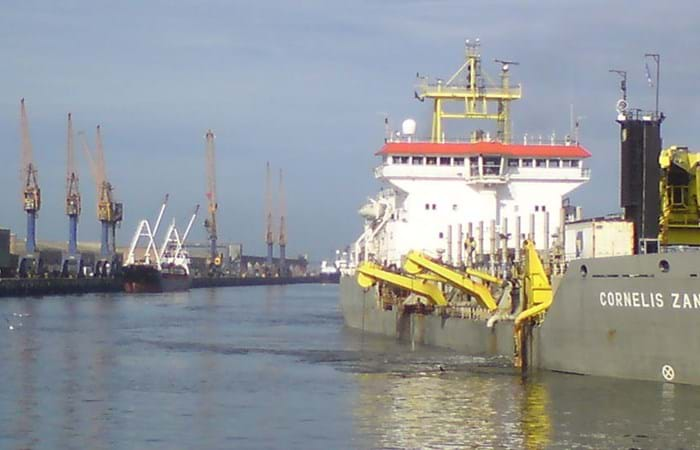The port of Walvis Bay is a naturally sheltered deepwater harbor on the west coast of Africa. The port is part of a transit route linking Southern Africa, Europe and the Americas and it is Namibia’s largest commercial port, handling around 5 million tons of cargo each year. The container terminal can accommodate a throughput of about 250,000 containers per year.
Work method
The contract for the dredging works was awarded to Boskalis International in mid-2010. The works included capital dredging in the entrance channel, allowing larger vessels to enter the port. Deepening of the channel was required to a design depth varying from 14.0 -CD to 14.4 m -CD. All the dredged material had to be taken to a designated offshore spoil site located at a sailing distance of approximately 13 km. The material dredged in the outer channel was very soft and can be typically described as ooze, or pelagic sediment composed of planktonic debris. In other areas very compact sandy material was found, especially in deeper parts of the profile. The ooze material contained large amounts of H2S and methane, and this was the major challenge on the project. A total of 1.8 million m3 of material was dredged during the four-month execution period. All the dredging works were executed with a Trailing Suction Hopper Dredger. The first TSHD deployed on site was the Argonaut, which was followed by the Cornelis Zanen halfway through the project. These vessels were perfectly adapted for dredging in the given conditions, especially in the relatively narrow main channel. A local plough barge with a 6.5 t plough and a 10 t bollard pull tug were hired through to the end of the project for the purposes of handing over the site in accordance with the contract specifications.
